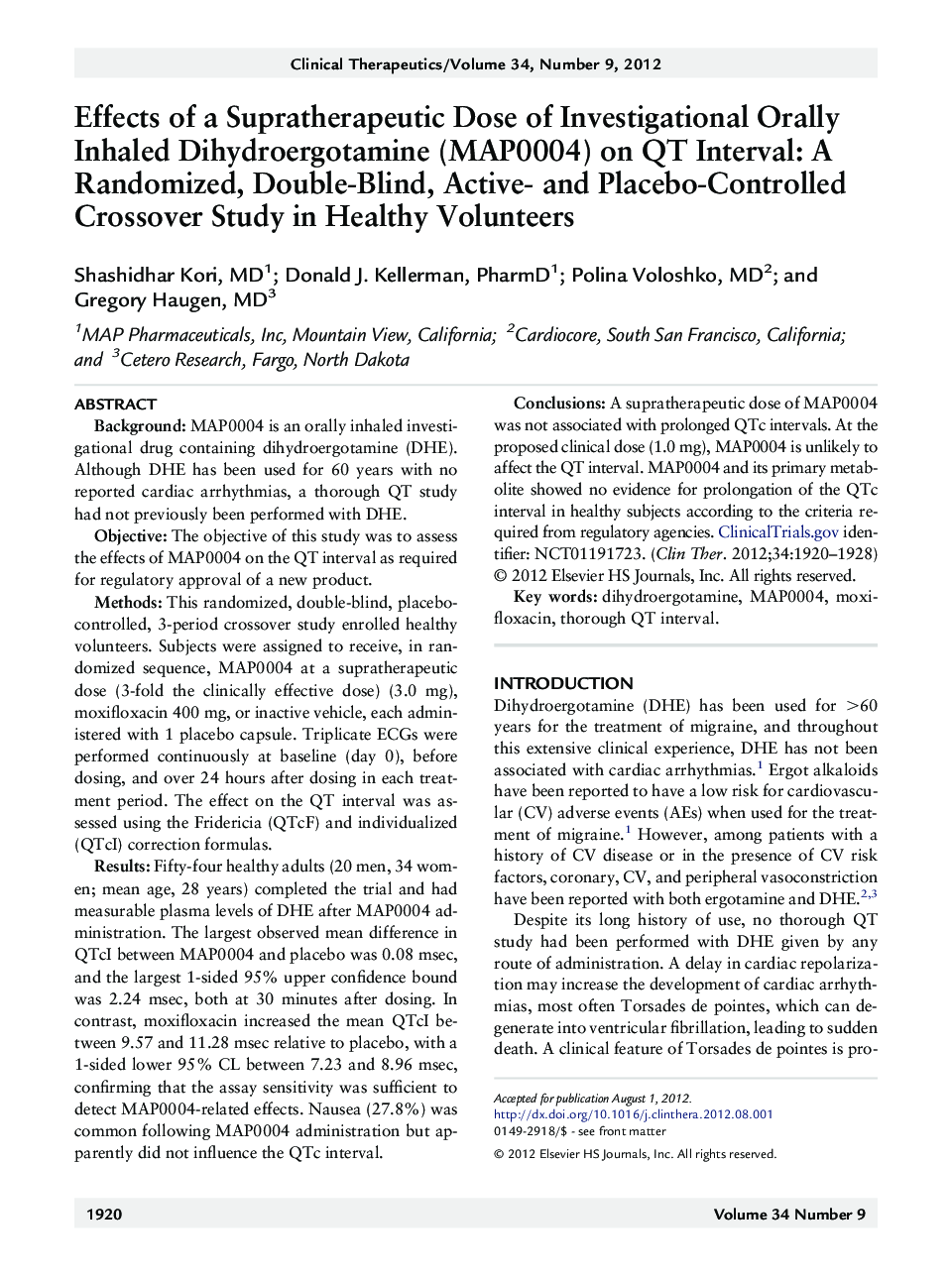| کد مقاله | کد نشریه | سال انتشار | مقاله انگلیسی | نسخه تمام متن |
|---|---|---|---|---|
| 2527332 | 1119909 | 2012 | 9 صفحه PDF | دانلود رایگان |

BackgroundMAP0004 is an orally inhaled investigational drug containing dihydroergotamine (DHE). Although DHE has been used for 60 years with no reported cardiac arrhythmias, a thorough QT study had not previously been performed with DHE.ObjectiveThe objective of this study was to assess the effects of MAP0004 on the QT interval as required for regulatory approval of a new product.MethodsThis randomized, double-blind, placebo-controlled, 3-period crossover study enrolled healthy volunteers. Subjects were assigned to receive, in randomized sequence, MAP0004 at a supratherapeutic dose (3-fold the clinically effective dose) (3.0 mg), moxifloxacin 400 mg, or inactive vehicle, each administered with 1 placebo capsule. Triplicate ECGs were performed continuously at baseline (day 0), before dosing, and over 24 hours after dosing in each treatment period. The effect on the QT interval was assessed using the Fridericia (QTcF) and individualized (QTcI) correction formulas.ResultsFifty-four healthy adults (20 men, 34 women; mean age, 28 years) completed the trial and had measurable plasma levels of DHE after MAP0004 administration. The largest observed mean difference in QTcI between MAP0004 and placebo was 0.08 msec, and the largest 1-sided 95% upper confidence bound was 2.24 msec, both at 30 minutes after dosing. In contrast, moxifloxacin increased the mean QTcI between 9.57 and 11.28 msec relative to placebo, with a 1-sided lower 95% CL between 7.23 and 8.96 msec, confirming that the assay sensitivity was sufficient to detect MAP0004-related effects. Nausea (27.8%) was common following MAP0004 administration but apparently did not influence the QTc interval.ConclusionsA supratherapeutic dose of MAP0004 was not associated with prolonged QTc intervals. At the proposed clinical dose (1.0 mg), MAP0004 is unlikely to affect the QT interval. MAP0004 and its primary metabolite showed no evidence for prolongation of the QTc interval in healthy subjects according to the criteria required from regulatory agencies. ClinicalTrials.gov identifier: NCT01191723.
Journal: Clinical Therapeutics - Volume 34, Issue 9, September 2012, Pages 1920–1928